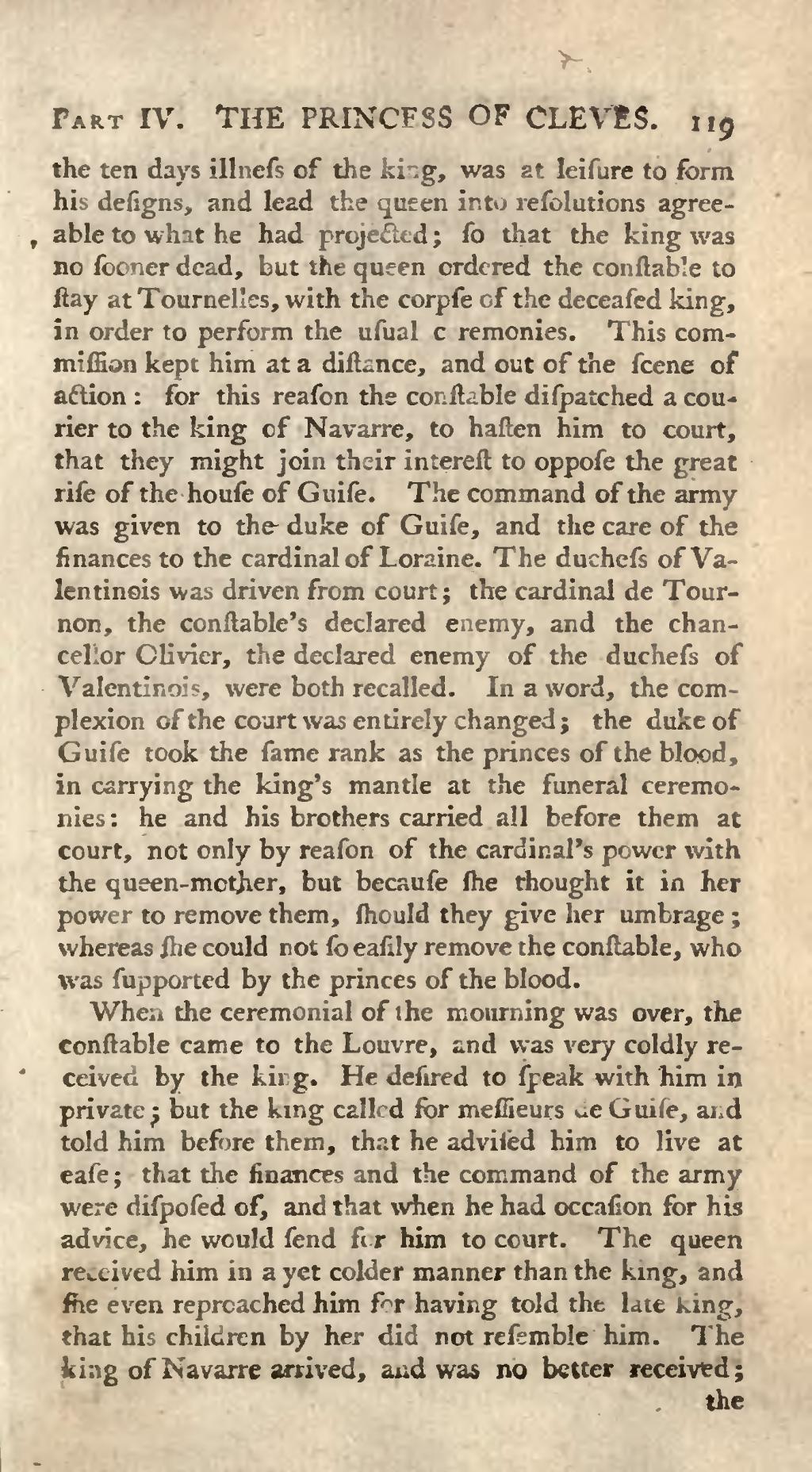the ten days illness of the king, was at leisure to form his designs, and lead the queen into resolutions agreeable to what he had projected; so that the king was nosooner dead but the queen ordered the constable to stay at Tournelles with the corpse of the deceased king in order to perform the usual ceremonies. This commission kept him at a distance and out of the scene of action; for this reason the constable dispatched a courier to the king of Navarre, to hasten him to court that they might join their interest to oppose the great rise of the house of Guise. The command of the army was given to the duke of Guise, and the care of the finances to the cardinal of Loraine. The duchess of Valentinois was driven from court; the cardinal de Tournon, the constable's declared enemy, and the chancellor Olivier, the declared enemy of the duchess of Valentinois, were both recalled. In a word, the complexion of the court was entirely changed; the duke of Guise took the same rank as the princes of the blood, in carrying the king's mantle at the funeral ceremonies: he and his brothers carried all before them at court, not only by reason of the cardinal's power with the queen-mother, but because she thought it in her power to remove them, should they give her umbrage; whereas she could not so easily remove the constable, who was supported by the princes of the blood.
When the ceremonial of the mourning was over, the constable came to the Louvre, and was very coldly received by the king. He desired to speak with him in private; but the king called for messieurs de Guise, and told him before them, that he advised him to live at ease; that the finances and the command of the army were disposed of, and that when he had occasion for his advice, he would send for him to court. The queen received him in a yet colder manner than the king, and she even reproached him for having told the late king, that his children by her did not resemble him. The king of Navarre arrived, and was no better received;
